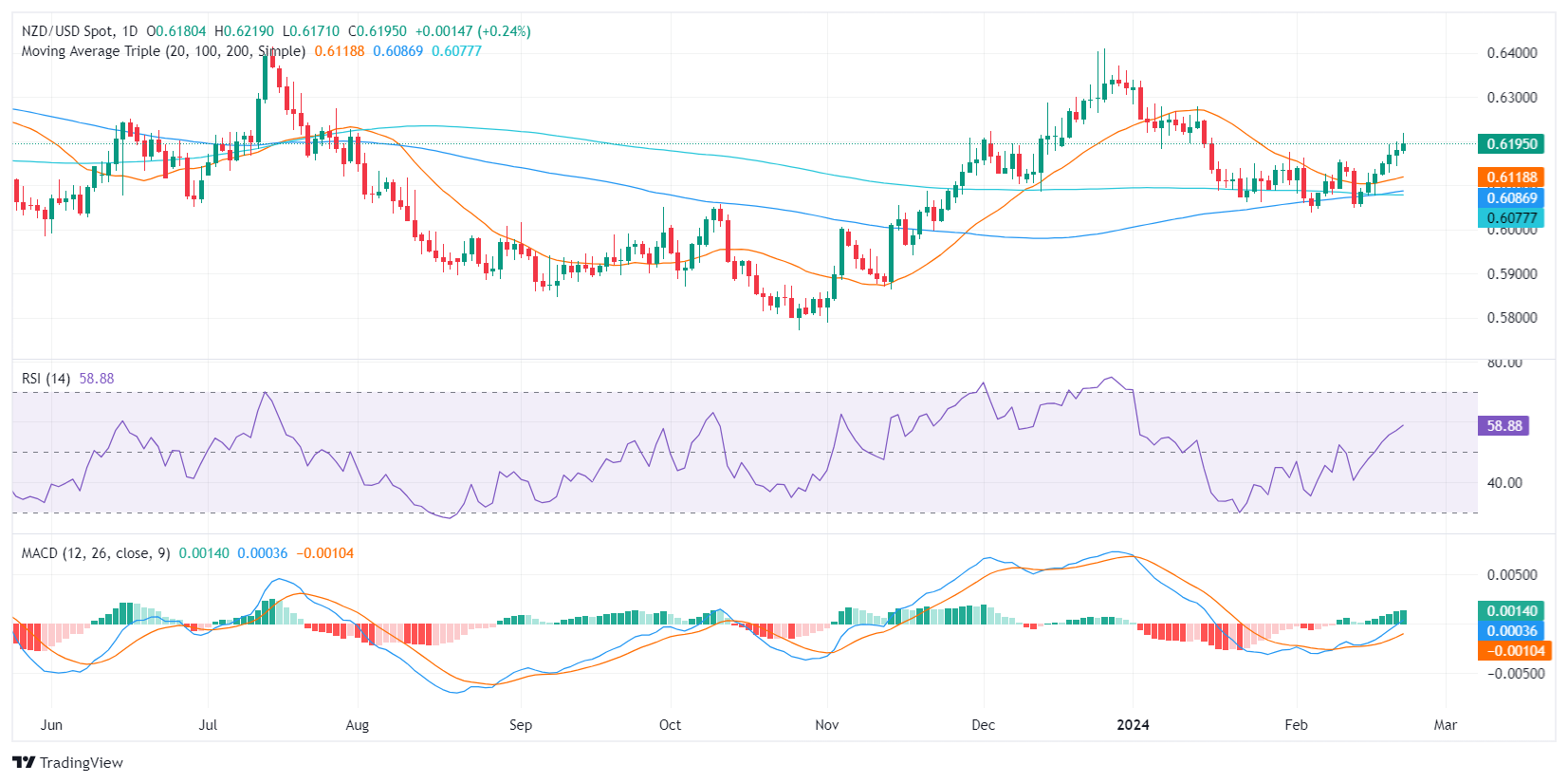- Analytics
- News and Tools
- Market News
- NZD/USD rises as markets digest US economic activity and labor market data
NZD/USD rises as markets digest US economic activity and labor market data
- The NZD/USD trades positively at 0.6193 with a 0.20% gain in Thursday's session.
- The US S&P Global PMIs from February came in mixed.
- Weekly Initial Jobless Claims from the US came in positive.
- If markets continue to bet on a more aggressive Fed the pair’s upside could be limited.
In Thursday's trading, the NZD/USD pair has exhibited minor advancements, currently trading at the level of 0.6193, with a slight increase.
On the data front, the US S&P Global Composite PMI declined to 51.4 in February's flash estimate from 52 in January, showing that the business activity in the US private sector continued to expand, albeit at a softer pace than in January. The Manufacturing PMI improved to 51.5 from 50.7 in the same period, while the S&P Global Services PMI edged lower to 51.3 from 52.5. In addition, Initial Jobless Claims from the week ending in February 16, came in lower than expected, further echoing the resilience of the US economy.
Despite the losses, the Greenback’s losses may be limited as incoming data may reaffirm the Federal Reserve’s stance to hold rates steady and delay the start of the easing cycle the economy doesn't show signs of cooling down. As for now, markets have practically given up on the odds of a cut in March and bet on low possibilities of the easing to start in May and instead, they push the first cut to June.
NZD/USD technical analysis
The daily Relative Strength Index (RSI) currently occupies a position within the positive territory, having gradually ascended from the negative area over consecutive trading sessions. A steadily increasing RSI implies that we may be experiencing a strengthening buyer dominance within the market.
Furthermore, the Moving Average Convergence Divergence (MACD) histogram is signaling bullish momentum from a series of rising green bars. Taken together, these metrics suggest an increased buying pressure for the NZD/USD pair over current trading.
NZD/USD daily chart

© 2000-2026. All rights reserved.
This site is managed by Teletrade D.J. LLC 2351 LLC 2022 (Euro House, Richmond Hill Road, Kingstown, VC0100, St. Vincent and the Grenadines).
The information on this website is for informational purposes only and does not constitute any investment advice.
The company does not serve or provide services to customers who are residents of the US, Canada, Iran, The Democratic People's Republic of Korea, Yemen and FATF blacklisted countries.
Making transactions on financial markets with marginal financial instruments opens up wide possibilities and allows investors who are willing to take risks to earn high profits, carrying a potentially high risk of losses at the same time. Therefore you should responsibly approach the issue of choosing the appropriate investment strategy, taking the available resources into account, before starting trading.
Use of the information: full or partial use of materials from this website must always be referenced to TeleTrade as the source of information. Use of the materials on the Internet must be accompanied by a hyperlink to teletrade.org. Automatic import of materials and information from this website is prohibited.
Please contact our PR department if you have any questions or need assistance at pr@teletrade.global.















